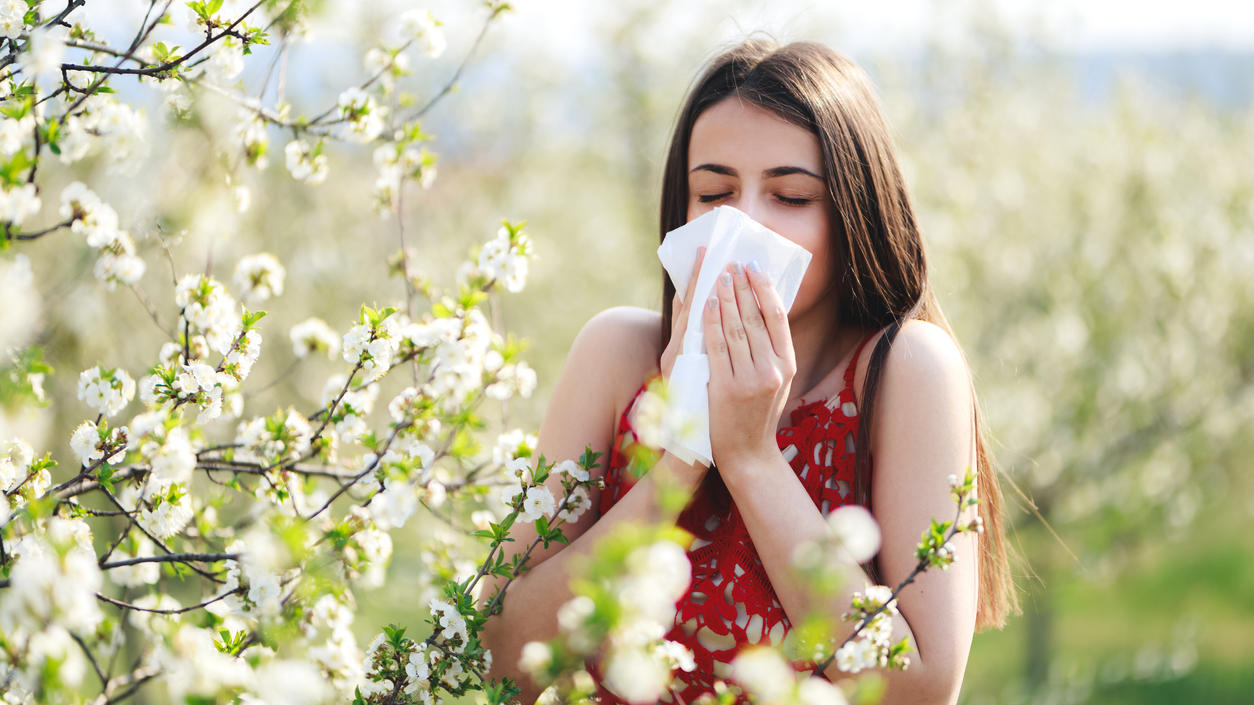Bad news just in time for the start of pollen season
We're excited about these expert predictions! By 2050, one in two Europeans will suffer from allergies
Hay fever is a real torture for allergy sufferers – and according to a study, it will soon affect half of Germany. (icon image)
: Orbazon, iStock
Will half of Germany's population soon cry and snort during the year of the pollen?
Many people have already felt it due to itchy eyes or a stuffy nose: the pollen count is in full swing due to the moderate temperatures in Germany. If you don't have allergies yet, you may soon have something in store for you, because experts assume that in a few years about half of Europeans will be affected by allergies.
RTL.de is now also available on WhatsApp – try it here!
The RKI has noted a sharp increase in the number of allergy sufferers since the 1970s
According to a survey conducted by the Robert Koch Institute (RKI) from 2008 to 2011, about 15 percent of Germans suffer from hay fever. Nearly nine percent of bronchial asthma. While hay fever affects the upper respiratory tract, asthma affects the lungs: for example, those affected experience bouts of shortness of breath. According to the RKI Institute, the frequency of allergic diseases has increased significantly in countries with a Western lifestyle since the 1970s and has stabilized at a high level. The frequency of asthma continues to rise.
Reading tip: Do you have a cold or do you already have allergies? Details make the difference!
Peace of mind from winter pollen? That was one time!
The winter months were considered a respite for allergy sufferers. Experts are now noting that due to climate change, the times when the last pollen from the previous season and the first from the new season disappear appear to almost overlap. This affects the incidence, frequency and severity of allergic diseases. “Allergy sufferers basically suffer from symptoms all year round,” Claudia Traedl-Hoffmann, director of environmental medicine at Augsburg University Hospital, told the German news agency. “They suffer longer and suffer more because more pollen is flying every day.”
Reading tip: Do hay fever tablets help? doctor. Fleck reveals what those affected should do
Another consequence of climate change is that pollen releases more allergens. According to the allergist, this is not only linked to higher temperatures, but also to higher levels of pollutants. It can be seen, especially in cities, that plants produce more pollen when pollutant concentrations are high – a stress response, explained Traidel Hoffman. “It's a plant survival strategy.” After all, pollen is used for reproduction. The fact that climate change brings new plants and therefore new pollens and new allergens to Germany could also become a burden.
Recommendations from our partners
Are you affected too? vote!
This content cannot be displayed
Sorry,
Please try again later.
Every two Europeans will be affected by 2050
According to the doctor, the development represents a particular problem for severe asthma patients and the elderly. “But of course our children in particular suffer incredibly from this.” Anyone who sneezes constantly or feels tired has trouble concentrating at school. What is the trend for the coming years? “The world's largest allergy society, the European Academy of Allergy and Clinical Immunology, predicts that half of Europeans will have allergies by 2050.”Traidel Hoffman said.
Sufferers can use nasal sprays, eye drops and tablets to combat symptoms. Immunotherapy treats the cause with injections or tablets (hyposensitivity). However, allergy sufferers should start hyposensitivity before annual allergy symptoms appear, recommends Traidel Hoffman. (DPA/FHU)

“Tv expert. Hardcore creator. Extreme music fan. Lifelong twitter geek. Certified travel enthusiast. Baconaholic. Pop culture nerd. Reader. Freelance student.”







More Stories
“Signs of spiders on Mars”
The Galeria Karstadt Kaufhof branch on Limbecker Platz will likely close
How did life begin on Earth? Munich researchers find important clues